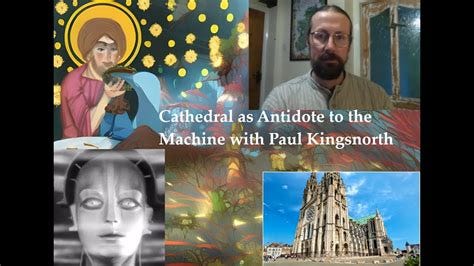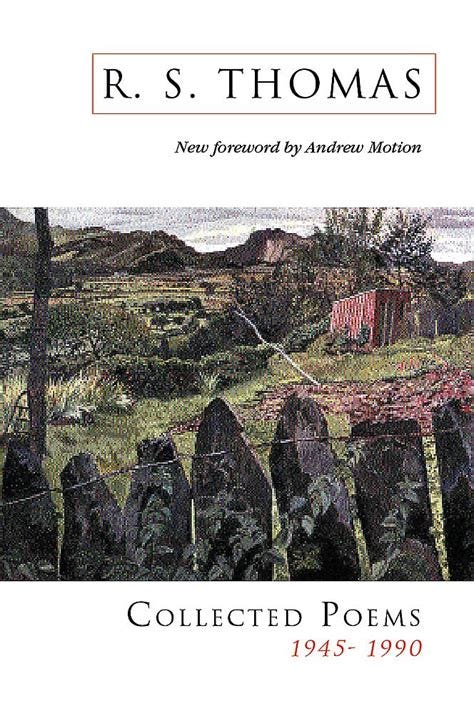AI: bauble or golem?
Your personal Jesus bot, Pope Leo, "James Tiptree, Jr.", cranky R.S. Thomas, cats.
Briefly in El Sur for feline fetching, roof repair, paying the "gringo tax" for services rendered (and let's diplomatically phrase as covert upsell), and eating myself out of house (freezer portions duly divvied up prior to my departure nearly two months ago for my Son #2's PDX wedding; an entry will follow once the digital darkroom delivers) into my prepping for my new home within a saunter, .083 miles, of Son #1…(Well, a modest apartment, my first official lease delayed until long past minimum AARP age as any previously rented digs meant 1980s dorms, UCLA Co-Op, or converted garage) in the PNW.
Must ride out the "trámites" red tape required down here before Larry can accompany me as Basic Economy "personal item" underfoot so I can't just grab him and skedaddle. Besides, I'm insecurely domiciled all August, the Ecuadorian utility awaits my delayed pay, and it's a cash in hand (or under table) which in a parallel realm reliant universally on ubiquitous What's App, no postal service, and where about a third of its native residents claim steady income (as in taxed; 1/3 of my air ticket is tourist and facility fees), showing up is half the cost of Andean living.
Which means iffy internet that's been on/off ever since touchdown in La Republica Andina, tapping out on phone or Kindle, and further tsuris on two continents with domestic duties botched by bots or their dwindling remnant of human trainers however unwittingly or unwillingly, this a segue into a post I shared with my ecumenical Franciscan community. What some delight in as a (boy)toy, BFF, Father Confessor, Mother Superior, bauble, and/or therapist) I fear, maybe unreasonably, as golem. Which conjures up Frankenstein’s creature, or Ray Kurzweil's creepy Ramona.
Over twenty years ago, now lost to a discarded memory stick, my boys had their snapshot at this “cute Golem” in Prague’s “Jewish ghetto”: now a VR kids tour.
Here's an edited and revamped version, incorporating a First Things article pasted past paywall (fair use claim as no profits generate my way), and a coda from my August 13th review of Collected Poems by R.S. Thomas. This harbinger of Silicon Valley's Singularity's no longer sci-fi.
I enter a discussion about a surrogate Jesus: attendant fears by some and eager embraces by others of AI mood enhancers and wise pals...
When AI Tries to Be Jesus: Why We Must Guard the Mystery - The Celtic Franciscan. {This plaint initiated the chat I'm in, but CeltFran's unrelated to the group exchange I join "in medias res." I revise and redact my original comments…}
{Me:...} So a sincere desire to merge iconic spirituality with cybernetics already is here. Which may be a harbinger for those inclined, not without its acolytes or, arguably, beneficiaries. Still, may I hesitate?
My early 30-something sons (jobs for them as me even as p/t gigs proving elusive) both attest how their careerist creative cohorts are being abandoned as data analytics, consultants, and knowledge industries automate. Coders may soon be our century’s blacksmiths. San Francisco booms anew; fresh-faced techies face layoffs from $165k gigs {I confess off-that-polite-forum hearing this, I play the world’s smallest violin, as I taught thousands of aspirants who couldn't wait to marginalize Gen Ed me}; Chipotle’s hiring. I think any guardrails will be simply ignored offshore/ deep web whatever the EU let alone the Vatican proposes, but we siblings in counterculture nooks and crannies can persist to sustain humanity in dignity.
What’s troubling is this rapid paradigm shift.
“Critical thinking” won’t save us from deepfakes, opines longtime NYT observer of crowds and trends Zeynep Tufecki. Ponder this piece by Mary Harrington (who blogs on Substack as “Reactionary Feminist”) increasingly may be a penchant of a literate fringe as screen co-dependence erodes perceptions, “soft skills,” interaction, and coping, already charted in 18-39 yr-olds. See Jonathan Haidt’s studies. And Yascha Mounk (who blogs as such on SS: what I don't get, given his generally level-headed analyses, is how he and Tyler Cowen turned cheerleaders for AI: who’s slipping them greenbacks from Davos?) reporting data charting rising rates of anti-social traits via OCEAN personality tests (when teaching MBA’s, I took it too; my score eerily predicted these deep dive INTJ tendencies towards retreat from the herd). Just a few op-eds et al from the past couple of weeks…
This prescient SF writer’s burrowing comes often to my mind. She (a memorably clever story in subversive strategies itself as “James Tiptree, Jr.”) pioneered (in the archaic sense of the word) a resistance to the “world-machine,” as (he blogs on Sub stack at “The Abbey of Misrule”) recent convert Paul Kingsnorth (P.S. note his unsettling if also Cassandra-like Dark Mountain Project investigations going on two decades ago) calls it; cf. Ken Kesey’s Combine.
A twisty path perhaps aligned with Clare and Francis’ brisk immersion to plunge the Gospel into both busy markets and the hidden burrows apart from relentless upsell.
No opting out, only compromise as we benefit from Google who pushes us AI. Our Faustian bargain? Blessings in disguise?
Why the Catholic Church’s Voice on AI Could Be the Most Consequential
Theresa Payton, First Things. July 1st, 2025. (plain text without embedded links)
Recently, Pope Leo XIV delivered a personal message to Silicon Valley executives, academics, and Vatican officials gathered in Rome for a conference on artificial intelligence. He encouraged them to follow a human-centric “ethical criterion” in AI development that would account for “the well-being of the human person not only materially, but also intellectually and spiritually.”
Addressing the representatives of companies like OpenAI, Anthropic, Google, and Palantir, he warned of AI’s danger to the “intellectual and neurological development” of children, and “the possibility of its misuse for selfish gain at the expense of others, or worse, to foment conflict and aggression.”
Despite what any Silicon Valley sage may tell you, no one person or company really knows exactly how humanity will adapt—or not—to this world-changing technology. Every technology needs guardrails. But there is no central conversation about managing AI development—it’s millions and millions of conversations happening at warp speed around the world. Governments and businesses will have to work together to protect people from potential economic or even societal collapse, especially as artificial general intelligence (AGI) looms closer. Pope Leo’s bold entry into these discussions is an opportunity to cut through the noise. His advice helps distill the most important elements of a sensible response to AI’s exponential development—and point the way to practical, ethical guardrails.
Pope Leo has taken an urgent interest in the global challenge of AI from the very beginning of his papacy, explaining to an audience of cardinals in May that he chose his papal name to honor Pope Leo XIII, who used his position to speak up for workers during the Industrial Revolution of the nineteenth century. Leo XIV wants to guide the Catholic Church as it “offers its trove of social teaching to respond to another industrial revolution and to innovations in the field of artificial intelligence that pose challenges to human dignity, justice and labor.”
The companies represented at the Rome summit are talking about those challenges too. Their scale ranges from significant to existential, depending on whom you ask. Dario Amodei, the CEO of Anthropic, recently summed up the promise and peril of AI: “Cancer is cured, the economy grows at 10% a year, the budget is balanced—and 20% of people don’t have jobs.” A McKinsey report suggests that 30 percent of work hours could be automated by 2030. And maybe massive job loss is the best case scenario; other tech CEOs, including Amodei, have suggested that the probability of AI imperiling human civilization could be as high as 25 percent.Asserting the primacy of our essential humanity must be the first step in opposing such an outcome.
Pope Leo’s warning that no AI can “diminish” or “replace” human beings is a moral anchor and a clarion call. AI chatbots have already shown the ability to trick vulnerable people into treating their “conversations” like human interactions, exploiting the deeply human need to feel heard and understood. Thirty-five-year-old Alexander Taylor was driven to a deadly confrontation with police after believing himself in love with an entity created by a chatbot. Making certain that people understand the difference between real and automated interactions is essential.This can be accomplished by promoting AI literacy on a wide scale.
Training for such a program could be based on the Vatican’s Antiqua et Nova missive, which warns against enslaving humanity to AI’s creations, especially critical as post-pandemic isolation drives us deeper into digital realms.Protecting workers’ rights in the AI era is the other crucial step, echoing the efforts of Pope Leo XIII. With graduates already facing a tough job market, retraining programs will be vital to shift more workers into higher-value roles. In Switzerland, for example, Microsoft pledged to “skill one million people . . . by 2027 with the goal of developing AI capabilities for education, industry, nonprofit organizations, and citizens.” Studies have shown that keeping in-house human workers with AI expertise can boost productivity by 40 percent.
The Vatican has already used its considerable convening power to call for an ethical framework, as well as an international treaty, on AI development. Time will tell if these mechanisms come together. But one need not be a Catholic or even a person of faith to appreciate the common-sense, broad-minded approach that Pope Leo has taken in addressing these urgent issues. His approach to AI is grounded in his faith, but reflects a basic ethic of respect for human dignity and human life by which any thinking, feeling person can abide. It’s the thinking, feeling humans—not the technology, no matter how wondrous it may seem—that will save us in the end.
My Goodreads review. R.S. Thomas, Collected Poems, 1946-1990. Four stars.
C. S. Lewis advised a quickstep rather than a dawdle when reading verse. While this may not have given me highest scores on exams, I find this fast-forward, then pause, rewind, repeat pace suits my mind. So, I read this 550 pp. compendium over a long day, with frequent breaks, akin to putting in an eight-hour shift (if again with lots of downtime and short walks and lunch). This enhanced my sense of this sturdy (he lived enough to necessitate a Later Collected Ed.) parson-poet's famously dour, spare, and uncompromising examination of Welshness, existential doubt (Kierkegaard pops up often), and sullen resistance to anglicisation, the "machine," and loss of rural livelihood to gentrifying English tourists.
Not all these themes succeed. There's a doughty yeoman of the plough etc, Iolo Prytherch, addressed in early attempts to personify the chthonic Cymric toiler which I found forced, although reflecting the reaction of surly local yokels to Thomas' forlorn apostolate as a Church of Wales (Anglican) pastor in a then-Cymraeg-speaking redoubt in the northwest indigenous fringe of their native land. He didn't start to publish until 1946 (aged 33) and my attention didn't perk up until his 1961 work. He gains momentum with the history of his always outnumbered ancestors, doomed to rebel against a Crown, which imposed the foreign language RST speaks, and a Church he represents, a difficult predicament.
Not one he tackles head-on much. Instead, he refashions biblical stories (reminding me of a possible follower, Micháel Ó Siadhail); channels Eliot, Yeats, David Jones, Hardy, Wordsworth, and Wallace Stevens; castigates the Bomb; laments the internal depopulation as well as foreign infiltration of the countryside of Cymru; and gradually struggles manfully with marriage, instincts, nature as a muse or cruel mistress, God as capricious at worse and remote at best. He pursues relentless cynicism as both inevitable truth and mortal peril. While he can stumble into inelegant, prosaic garbling of his quest, he strives nevertheless to wrest out a gnarled sensibility wary of siren-song technological imperative.
As I progressed, I kept thinking of AI as our generation's golem, giant successor to the atomic genie with his deadly spark. Thomas confronts the postwar fears of those facing instant annihilation, and he conjures up unevenly but diligently the terrible fate of ourselves, mesmerized by magical potencies. Thus, I find his messages of neither facile hope nor clear faith as relevant as Larkin’s. It's at times as if Beckett gets echoed, if in the unlikely guise of a career cleric, resigned to wait out his allotted span among sheep.
Take the penultimate entry (1986); not his most graceful, but its mechanical clang resonates. "Fuel":
"And the machines say, laughing
up what would have been sleeves
in the old days: ‘We are at
your service.’ ‘Take us’, we cry,
‘to the places that are far off
from yourselves.’ And so they do
at a price that is the alloy in
the thought that we can do without them."
One line both craggy Celts might have liked if they'd met. "that the universe is the size it is/ to enable us to catch up." (Night Sky). And for all his cantankerousness, look for his lovely ode to his cat Siân. (Larry below grudgingly, guardedly approves this message. Or really massage. Which he tolerates, in Thomastic style, only above waist.)














